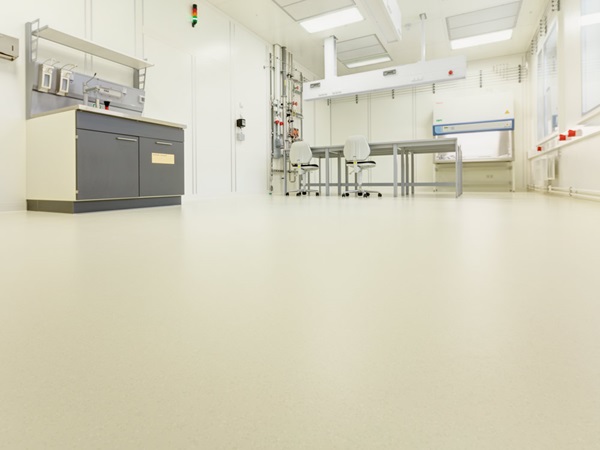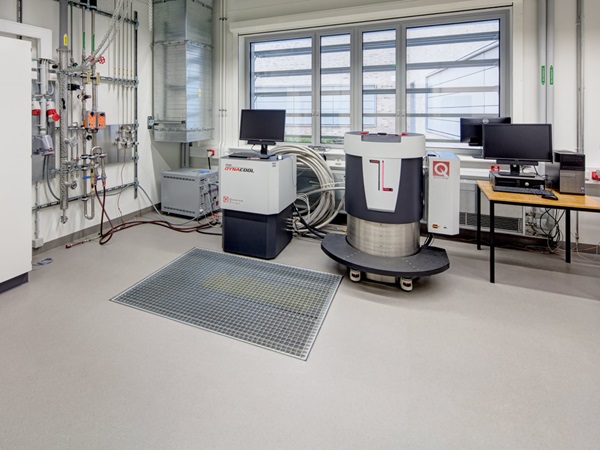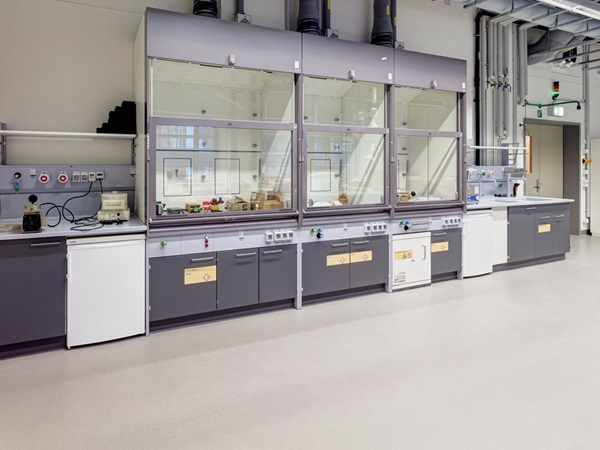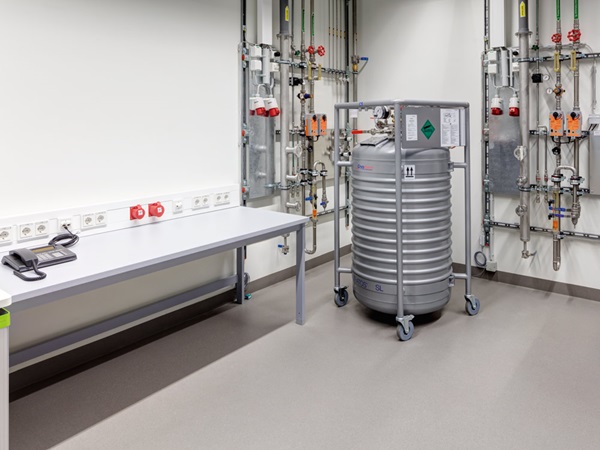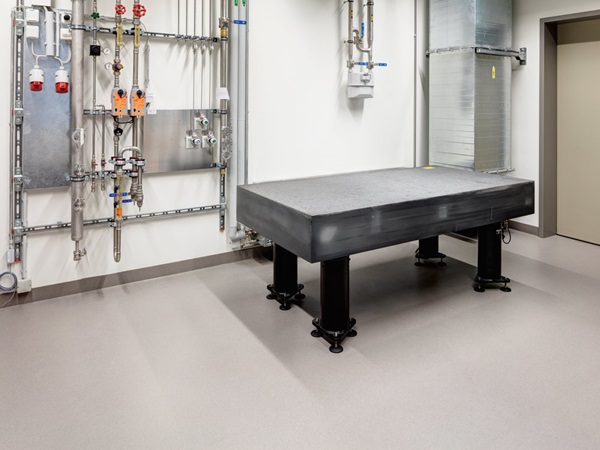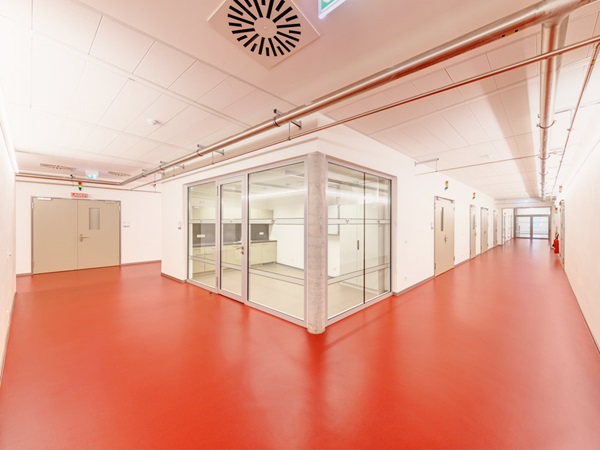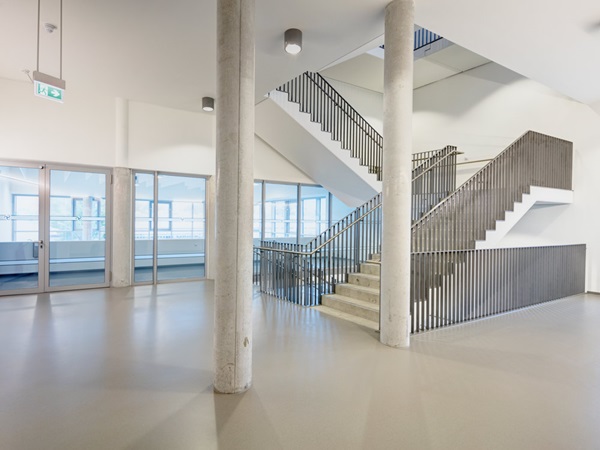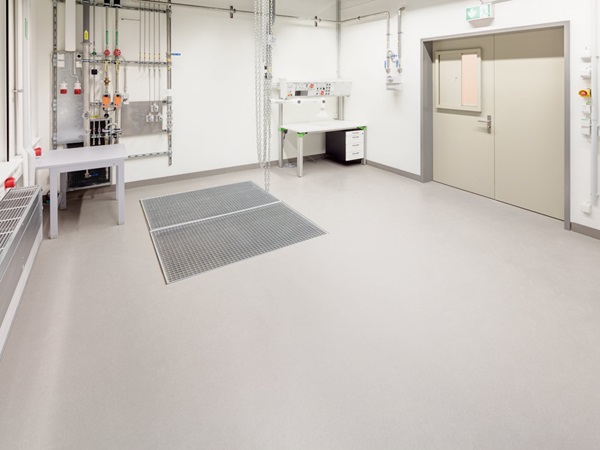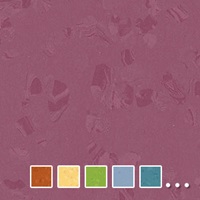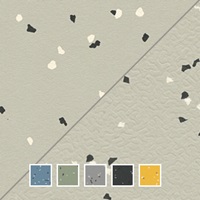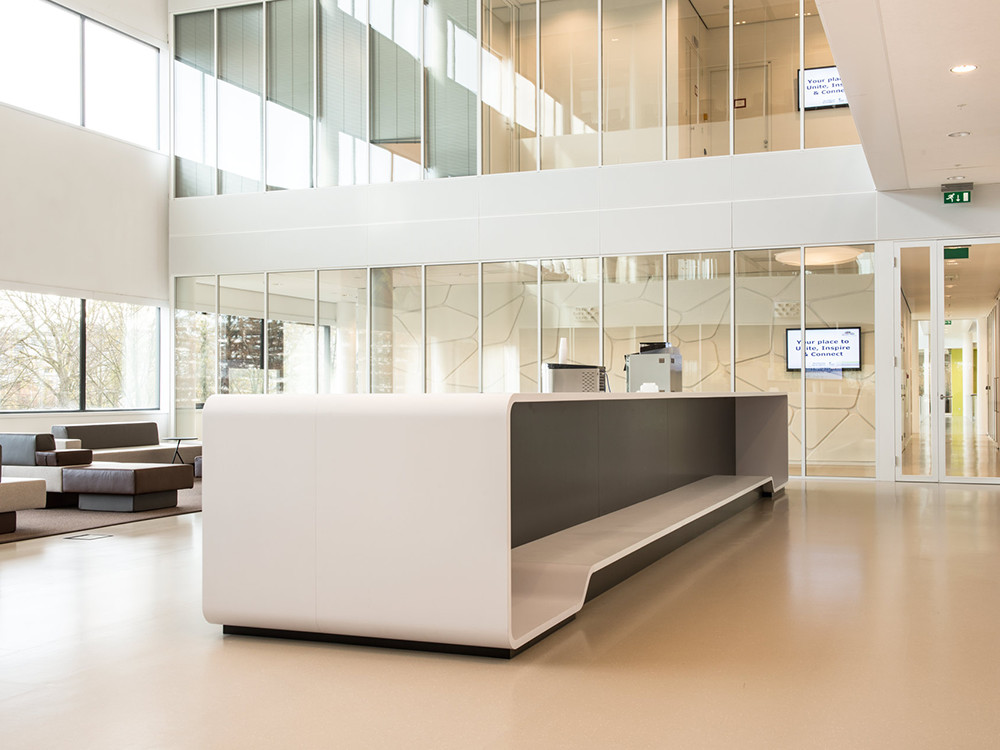Resistant to chemicals and disinfectants
The scientists at the CHyN work with different solvents such as acetone and isopropanol. These will be used to clean samples, for example. “In everyday laboratory operations, it cannot always be avoided that these liquids reach the floor,” notes physics engineer Thomas Finger, technical director of the CHyN. “It was clear to us that the floor had to be extremely resistant to media.” Before deciding on nora® Flooring systems, the products from Weinheim were first put to the test: The ChyN carried out in-house experiments by applying various chemicals to the floor – with positive results. noraplan® sentica ed, which is installed in the clean rooms and semiconductor laboratories covering almost 5,000 square meters, resists contamination, chemicals and disinfectants. nora® rubber floors were tested by Fraunhofer IPA, which certified their eligibility for GMP A as well as under ISO 14644-1 up to Class 2, and noraplan® sentica ed up to Class 3.
Rubber reduces shocks and vibrations
“The samples that scientists use here are, on average, only ten by ten millimeters in size and the structures on them are in the nanometer range. It was therefore clear to us that the floor covering had to have extremely good footfall sound absorption in order to avoid any vibrations and to ensure shock-free working,” Finger explains. “A hard PU coating was therefore eliminated from consideration.” The architects advised rubber. Due to their permanent elasticity, nora® floors reduce footfall sounds and unwanted vibrations. Some laboratories at the CHyN, for example, have 600-kilogram optical tables on which microscopes or spectrometers are built. In these areas, the floor must absorb shocks reliably, so as not to corrupt the measurement results. Another plus: nora® floors also reduce noise when walking, thus ensuring a quiet work atmosphere and at the same time providing an ergonomic working environment.
10-year guarantee on ESD properties
“For both the user and Sprinkenhof GmbH as the client, the 10-year guarantee that nora gives on the ESD properties of its floors was an important argument,” says Carolin Hübner, one of the project managers at the architecture firm burckhardtpartner REINERBECKER. nora® floors are homogeneous and volume-conductive, without wires, fibers or waxes. The earthing is carried out via dissipative adhesive and copper strips for equipotential bonding. “We are renting the building from Sprinkenhof for at least 20 years and since we will have varying uses in the laboratories over such a long period of time, we wanted to equip all laboratories from the outset with an electrostatic dissipative floor even where this may not be necessary at the moment,” Finger says. “It is important for us that everything works smoothly – and over the long term.”
Cross-functional design solutions
In the clean rooms, the floor is light gray, and the laboratories received noraplan® sentica ed in a medium gray. In contrast, the corridors were designed in a dark red, which echoes the color of the university logo. The color concept was not chosen for aesthetic reasons alone. “We wanted a floor that would look seamless on the surface, but that would also still be dirt-concealing because of the granules,” Hübner explains. “noraplan® sentica was ideal here.” Another major advantage for the architect is the fact that nora® floors with different functional properties, such as electrostatic conductivity, are available in the same design, thus enabling cross-functional design solutions: This way, clean rooms, laboratories, corridors and entrance areas in the CHyN have a uniform appearance. One flooring system – many uses: The other research centers on the Bahrenfeld campus, DESY and CSSB, also use nora® rubber floors over more than 3,300 square meters.

 worldwide | English
worldwide | English
